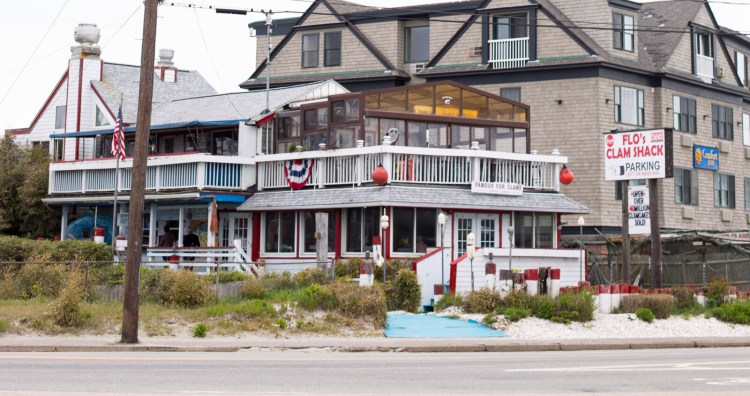Though a sign outside proclaims the spot is “famous for clams,” Flo’s Clam Shack in Rhode Island is taking a hiatus from hawking fried steamers.
The restaurant has been shelling out the crispy, salty dish for decades. But market price for soft-shell clams is just too high right now, owner Komes Rozes said.
The price of the clams, often called steamers, is prone to fluctuation, but Rozes said this summer’s spike is the worst he has seen in 45 years in the industry. He said last week a gallon of clams would go for $225 – $75 more than the highest price he’ll pay.
Flo’s has two locations in Rhode Island and a more than 80-year legacy. The seasonal restaurant has been knocked down by hurricanes and rebuilt several times. Its award-winning seafood has been featured on Food Network, including the fried clam roll being lauded on the show “Best Thing I Ever Ate.” But for now, fried clams are a no-go.
Prices across many food markets have swelled because of the coronavirus pandemic, labor shortages, destructive red tides, extreme weather and more.
Soft-shell clams are especially at risk when the climate changes rapidly, researchers say. The number of clams for harvest is also dwindling, Chad Coffin, president of the Maine Clammers Association, told the Associated Press in April. Hot summers have been killing soft-shell clams for decades.
Soft-shell clams take three to four years to grow to the market size of two inches, according to the Maine Clammers Association. Clamming is backbreaking work, the association said, as soft-shell clams burrow in intertidal areas and workers dig them up by hand with rakes and hoes.
Maine, where Rozes gets most of his soft-shell clams, had its smallest harvest in more than 90 years last year, the Associated Press reported. A 2016 study found the state’s soft-shell clam yield had declined by 75 percent over the previous 40 years. Researchers at the Downeast Institute, a marine research lab and education center, say the highest risk to these clams is predators such as the invasive green crab and milky ribbon worm, which are thriving in the Gulf of Maine’s warming waters.
Businesses and consumers know seafood prices are volatile, hence the market price tag in lieu of a set cost on many menus. But at some point, Rozes said, the cost becomes too high to justify.
He said he’s not willing to pay the current soft-shell crab market price or pass it on to his customers, so the clam shack will operate without fried clams until the price drops. He expects it to take about a week.
“Even if I was to break even, it would be outrageous prices to customers,” he said. He estimated he would have to charge at least $40 for about 12 pieces of clam.
The restaurant announced its decision to temporarily stop selling fried clams in a Facebook post Tuesday.
“Well here we go again with the absolute highest price for frying clams anyone in this business has ever seen!” the post read. “Sorry, we are not selling any until the price drops, hopefully soon.”
A few weeks ago, Flo’s was charging between $25 and $27 for a clam platter, which includes fries and coleslaw. Rozes said that already felt too expensive.
He said he has long had issues with the way clams are priced. He doesn’t believe the price should seesaw so much, regardless of whether clam diggers are having a difficult season.
“It’s a clam scam,” Rozes said. “They do this every year.”
The owner said he isn’t worried about losing revenue by not selling one of the restaurant’s staples for a time, especially since that revenue would have been low or nonexistent. If customers are set on fried clams, he said, there are plenty of restaurants where they’re still available – for a price.
“The quality and the taste between a $20 order of clams and a $45 order of clams is the same, so it depends how bad you want them,” he said. “It’s not going to taste any better when it’s twice the price, that’s for sure.”
Coffin said that in April soft-shell clams were already selling for about $7 per pound at retail price, which he estimated was about 40 percent higher than normal and particularly unexpected before peak clamming season.
Rozes said he has gotten largely positive feedback from customers, who appreciate that he’s “not being greedy.” But he’s also gotten a few angry messages from clam diggers in the past several days.
He said that with so many other seasonal businesses having to close due to the pandemic, he feels lucky to have a dedicated customer base to keep Flo’s afloat.
There are plenty of menu options left at Flo’s, despite the fried clam stoppage. They’re still serving fresh calamari, scallops, shrimp, fish and chips, chowder made with hard-shelled clams and more. They sell up to 40 gallons of that chowder every day, Rozes said.
Send questions/comments to the editors.



Comments are no longer available on this story